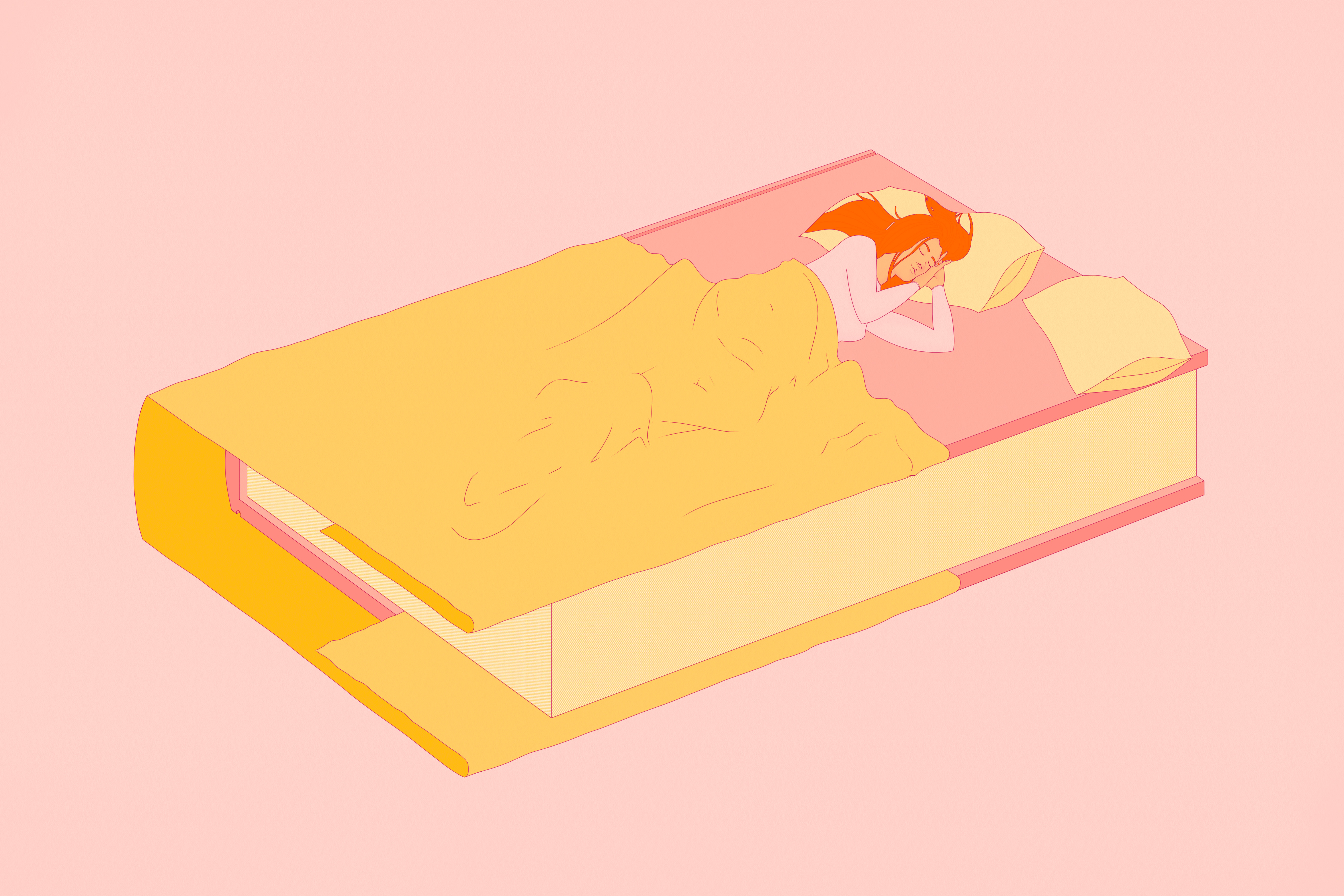
- Home |
- Search Results |
- Books to read to help you sleep better
Those deep, dark hours of the morning when it feels as if everyone else is asleep can be staggeringly lonely. Even in the heart of the city, the silence is heavy, interrupted only by the eerie wail of a passing siren. But these are also hours that can be used for reading – and the absence of sleep has long inspired those who write.
Some of the books below can induce sleep; or at least help you to look at your wakefulness in a new light.
Practical sleep guides
I Can Make You Sleep by Paul McKenna (2009)
Hypnotist Paul McKenna has earned a reputation for changing peoples' lives with good reason: his methods work. I Can Make You Sleep pretty much does at it says on the tin – condensing 20 years of McKenna's experience in dealing with patients suffering from insomnia to a simple and easy method that really can make a difference.
You may not have heard of Michael Acton Smith, but you've probably heard of Calm, the app he created that has helped millions find more space for rest in their day. In The Magic of Sleep, Smith draws upon the learnings that informed Calm to create this sleeping aide and bedside companion, teaching the science of sleep while encouraging new ways for you to optimise sleep with useful, impactful hacks.
Described as "a life raft" by The Guardian, scientific expert Matthew Walker offers the why behind the how of getting more sleep. Walker looks beyond the human world and into that across the animal kingdom to offer insight into REM, the impact of caffeine and alcohol on sleep and why we change how much we sleep throughout our lives.
Can you really change how you sleep during the course of a week? Sleep scientist Dr Aric Prather thinks so. This book doesn't so much offer what you should do to get sleep as what you shouldn't. From making time to wind down to stopping those middle-of-the-night worries, Prather tackles the things in the way of a good night's sleep.
Poetry and novels about sleep
Then there are the words that have come from sleepless nights themselves. The poetry of nightmares and daydreams, of thoughts that creep into the moments between night and day.
Poems of Sleep and Dreams by Peter Washington (2004)
From Yeats to Thom Gunn, this makes a helpful bedside tome. From verse about daydreams and nightmares, to twilight and dawn, this book collects work from the greatest writers to help you think and reflect more beautifully on sleep – and perhaps even encourage some of it to turn up.
Good Morning, Midnight by Jean Rhys (1939)
If you’d rather stick to fiction, try skewing towards the 20th Century and Jean Rhys’s renowned meditation on solitude, Good Morning, Midnight. There’s more melancholy than resolution in this artful portrayal of a fragile woman spending sleepless hours, during the twilight of her life, reflecting on where it all went wrong, but don’t let the common dismissal of this novel – summed up in one contemporary review as "well-written, but too depressing" – put you off. There is perspective and strange beauty to be found in Rhys’s nocturnal examination.
Good Morning, Midnight was semi-autobiographical, and the strange telescoping of time that can come from insomnia is something best known to those who have experienced it.
Memoir and inspiring non-fiction
The Shapeless Unease, A Year of Not Sleeping by Samantha Harvey (2020)
Harvey's intimate memoir immaculately pinpoints what it is to be awake because of the news during the past decade.
A combination of family tragedy, home relocation and the EU referendum result transformed Harvey from a solid, take-it-for-granted sleeper into a chronic insomniac. Her memoir, released in January, explores not only the brutality of operating on no rest but also its impact on creativity. And there is solace in The Shapeless Unease, too: while there’s no such thing as a neat ‘cure’ for insomnia, Harvey does find a way to gain sleep, which brings its own hope.
Confessions of an English Opium Eater by Thomas De Quincy (1821)
Alternatively, comfort may lie in delirium: the vicarious kind, of course. Thomas De Quincy’s Confessions of an English Opium Eater spirals through visions, waking dreams and foggy sleeplessness induced by the author’s fondness for eating inadvisably large portions of laudanum, paving the way for future drug-fuelled missives from Burroughs and Baudelaire.